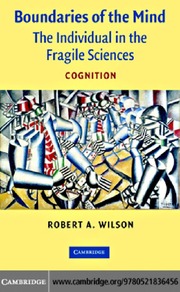Approach
TESEE is an approach to the processes of awareness/introspection, meta-representation and attention. It is continuous with the embedded and embodied approach to memory, cognitive development, and theory of mind.
Its complicated processes of awareness extend beyond the immediate subject in space and time. They exploit information-rich external bits of language and navigation equipment (the scaffolds) and rely on dynamic relations between the subject's body and the environment in which it is located.
This approach can be extended to phenomenal consciousness, arguing that a phenomenal property is not an intrinsic property of experience but rather a feature of the representation of its objects. As such, phenomenal properties inherit their importance from the intentional contents to which they apply. According to representationalists such as Fred Dretske, William Lycan, and Michael Tye - phenomenal consciousness is externalistic. Thus Wilson thinks that this global externalism goes both too far and not far enough.
TESEE conceptions of vision and visual consciousness relies on the sensorimotor theory of visual consciousness of philosophers Alva Noë and Susan Hurley, and psychologist J. Kevin O'Regan, arguing that vision, like touch, involves active and dynamic exploration of the contingent features of the environment.
This page is based on this
Wikipedia article Text is available under the
CC BY-SA 4.0 license; additional terms may apply.
Images, videos and audio are available under their respective licenses.
